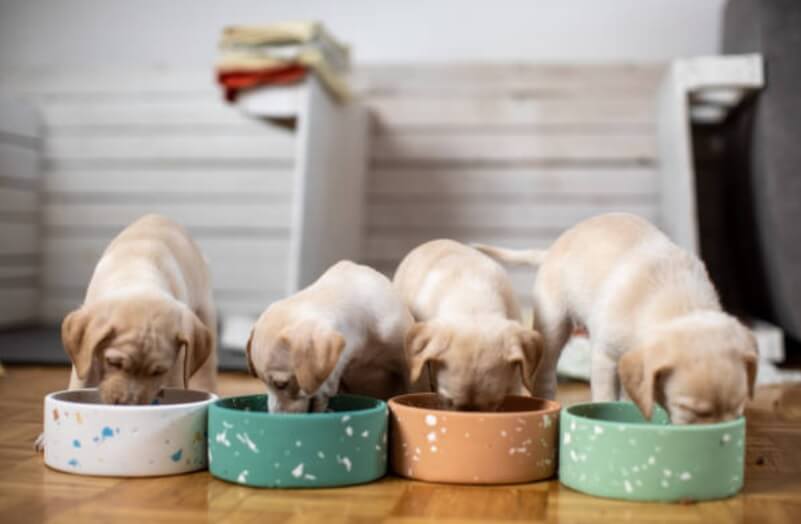Everything You Need to Know for Raising a Healthy Puppy

Critter Nets - Puppy Care
Bringing a puppy into your home is an exciting adventure, but it also comes with a lot of responsibility. Whether you're a first-time puppy parent or have had dogs before, this guide will walk you through the essential steps to raising a well-adjusted, healthy, and happy puppy.
1. Puppy Nutrition: Fueling Your Puppy’s Growth
A healthy puppy starts with the right nutrition. Your puppy’s diet is crucial for proper growth, development, and energy levels. Unlike adult dogs, puppies need nutrient-dense food to support their high metabolism and growing bodies.
Key Nutrition Tips:
-
High-Quality Puppy Food: Choose foods specifically designed for puppies, packed with protein and fat. Look for products with real meat as the first ingredient.
-
Portion Control: Overfeeding or underfeeding can lead to health issues. Follow the feeding guidelines on the packaging and adjust based on your puppy's breed and activity level.
-
Avoid Human Food: Certain human foods, like chocolate, grapes, and onions, can be toxic to puppies. Stick to puppy-safe treats.
2. Puppy Training: Building a Strong Foundation for Good Behavior
Training your puppy is essential for their mental and social development. Puppies are like sponges, ready to soak up everything they learn, so it’s best to start training as soon as you bring them home. Early training builds a strong foundation for a well-behaved dog.
Basic Training Tips:
-
House Training: Take your puppy outside frequently, especially after eating or waking up. Use a crate for potty training to encourage your puppy to hold their bladder.
-
Socialization: Introduce your puppy to various environments, people, and other pets to help them become well-adjusted.
-
Basic Commands: Start with easy commands like “sit,” “stay,” and “come.” Reward them with treats and praise when they follow through.
3. Health and Wellness: Keeping Your Puppy Healthy
Ensuring your puppy’s health is one of the most important things you can do as a pet owner. Regular check-ups with the vet, vaccinations, and preventive care are essential for a long and healthy life for your puppy.

Health Essentials:
-
Vet Visits: Schedule your puppy’s first vet visit within the first week or two of bringing them home. Your vet will provide essential vaccinations and check-ups.
-
Preventive Care: Keep up with flea, tick, and heartworm prevention. These common parasites can cause serious health issues.
-
Signs of Illness: Be alert to symptoms like lethargy, vomiting, or loss of appetite, and contact your vet if you notice any changes in behavior.
4. Grooming: Keeping Your Puppy Clean and Comfortable
While grooming is an essential part of puppy care, it’s also a great bonding opportunity. Regular grooming ensures your puppy stays clean and comfortable, and it’s also an important part of keeping their coat and skin healthy.
Grooming Tips:
-
Bathing: Bath your puppy only when necessary, using a mild puppy shampoo that won’t irritate their skin.
-
Brushing: Brush your puppy’s coat regularly to remove loose hair and prevent matting. Some breeds require more frequent grooming, while others need less.
-
Nail Trimming: Regularly trim your puppy’s nails to prevent discomfort and damage. Introduce them to nail trimming early to get them used to the process.
5. Puppy Playtime and Exercise: Keeping Your Puppy Active
Exercise and play are important for your puppy’s physical and mental development. Regular playtime helps burn off energy, provides mental stimulation, and strengthens the bond between you and your puppy.
Playtime Ideas:
-
Interactive Toys: Use toys that challenge your puppy mentally, like treat puzzles or chew toys.
-
Outdoor Play: Take your puppy on walks or let them run in a safe, enclosed area. Socialize them with other dogs if they’re old enough.
-
Training Games: Incorporate training into playtime. Use treats to encourage your puppy to follow commands while playing.
6. Solving Common Puppy Care Challenges
Raising a puppy can come with challenges. From potty training mishaps to dealing with separation anxiety, we’ve got you covered with solutions for common puppy problems.
Common Puppy Problems:
-
Chewing: Puppies explore the world with their mouths, which can lead to destructive chewing. Provide them with appropriate chew toys and be consistent in redirecting them when they chew on furniture.
-
Separation Anxiety: Puppies often struggle with being left alone. Gradually get your puppy used to being alone for short periods, and provide distractions like toys or a cozy bed.
7. FAQs: Puppy Care Essentials
Q: How do I know what size crate to buy for my puppy?
A: Choose a crate that gives your puppy enough room to stand, turn around, and lie down comfortably. A crate that’s too large can be overwhelming, so consider buying an adjustable one as your puppy grows.
Q: When should I start training my puppy?
A: You can start basic training as early as 8 weeks old, focusing on potty training and socialization first. Formal command training can begin a few weeks later.
Q: How often should I feed my puppy?
A: Most puppies need three meals a day until they’re about six months old. After that, you can reduce it to two meals daily.
